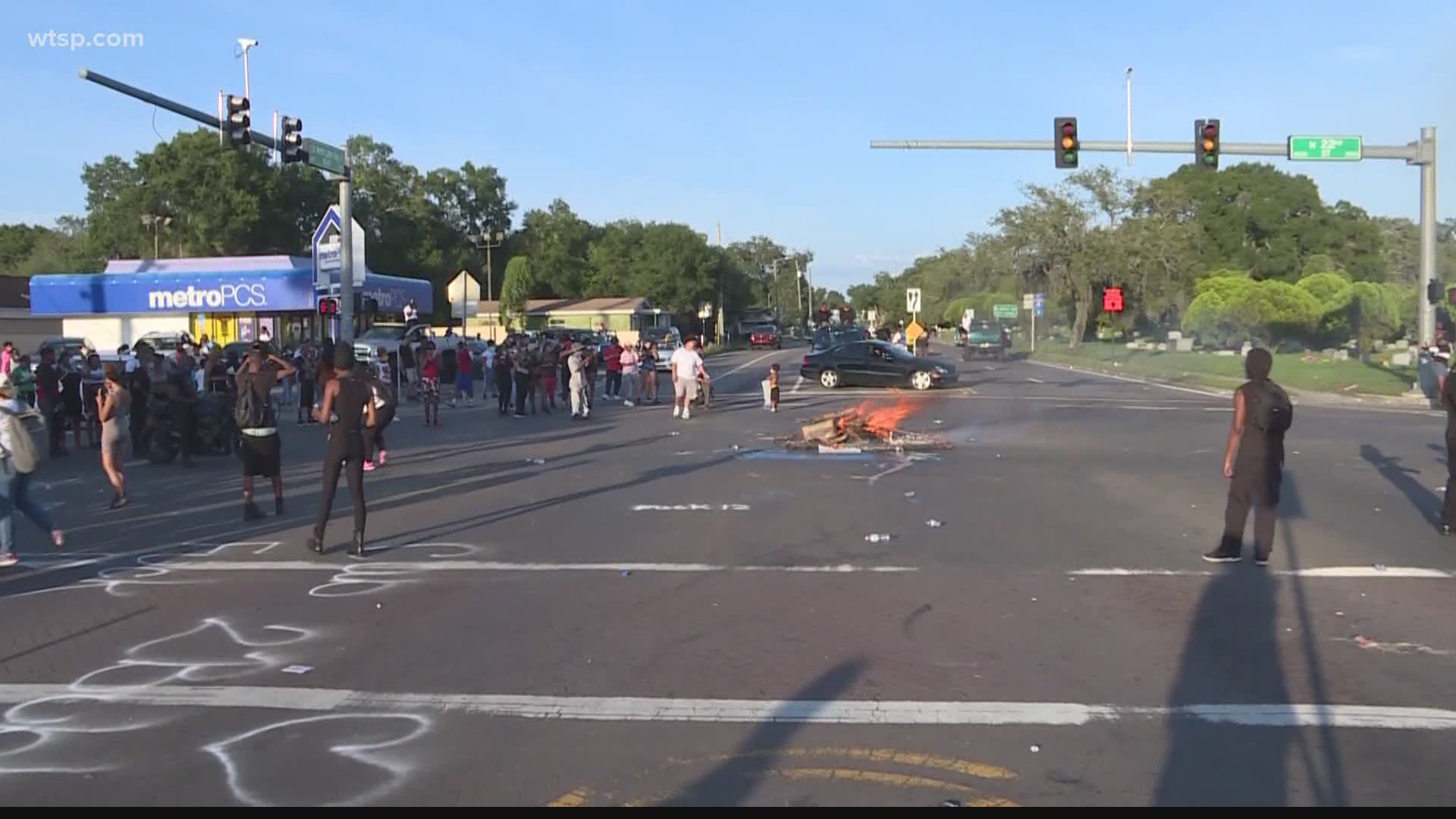TAMPA, Fla. — The racial tension that’s swelled nationwide amid backlash over George Floyd’s death brought faith leaders, law enforcement and the city’s top officials together this week for an open conversation about addressing systemic racism.
"What none of us want is for Tampa to become another powder keg of a situation of things that we see happening nationally,” said Christopher Harris, executive pastor of Crossover Church on Fowler in Tampa. "We wanted to use yesterday's meeting as an opportunity to officially start an in-depth conversation.
"Not just about law enforcement, but about systemic injustice, and specifically as it relates to the city of Tampa."
In attendance were a number of pastors from the African American community, Tampa Police Chief Brian Dugan, Hillsborough County Sheriff Chad Chronister, State Attorney Andrew Warren, City Council Chairman Guido Maniscalco and Mayor Jane Castor.
In a statement to 10 Tampa Bay, Mayor Jane Castor said of the meeting:
"In order for systemic change to happen, we have to start by having these important conversations—and that means bringing everyone to the table. I want our community to know that we hear you, we see your pain, and we want to be the change here in Tampa.
"I was grateful for this opportunity to hear from some of our faith leaders, and reflect on how we can make positive changes as a city, as a community and as a country to fight racial injustice."
Harris said while some of the recent high-profile police-involved deaths including George Floyd and Breonna Taylor happened hundreds of miles away, the strained relations between the Black community and law enforcement are very real in Tampa.
Maniscalco added that there have been deadly incidents involving unarmed black men that have caused mistrust in Tampa’s Black community.
“For over half a century, there have been several instances between police and the public where a Black man or an innocent Black man was killed for whatever reason,” said Maniscalco, who also said there were conversations in the meeting about police having an increased presence in neighborhoods where they are there as part of the community instead of being seen as against it.
Harris said the conversation went beyond problems in law enforcement and into ways to address institutional racism in the community. Education, housing, economics and jobs are all areas that the African American population in Tampa have struggled with.
He said if we are to get to the root of the unrest, those in power must be willing to take action to fight bias in discrimination in these areas as well.
“We want systemic, long-rooted deep change that helps to level the playing field and helps equity to be real,” Harris said.
Maniscalco said also it’s important to understand some of the root causes of the unrest beyond issues with law enforcement.
"When they say, 'Why is there rioting and why is there looting?' and I said, 'You have a group that has not been listened to, and they're speaking up,' and for years they've been ignored and people are kept in this perpetual poverty. Government and politicians never make the investment to lift people out of poverty,” he said.
Faith leaders also want to see more done in the area of criminal justice reform. State Attorney Andrew Warren said he took a step in that direction this week by not prosecuting 67 protesters arrested in demonstrations over George Floyd's death.
- Bucs release first photos of Tom Brady in team uniform
- Florida sees highest number of COVID-19 cases yet: 2,783 in one day
- Nurse and theme park workers among 16 men arrested for child porn, Polk sheriff says
- Gatlinburg Skybridge glass cracked by visitor
- President Trump signs executive order on policing reform
- CDC posts everyday tips for minimizing COVID-19 risk
- Epidemiologist says data can be misleading and coronavirus is spreading in Florida
FREE 10 TAMPA BAY APP:
►Stay In the Know! Sign up now for the Brightside Blend Newsletter



